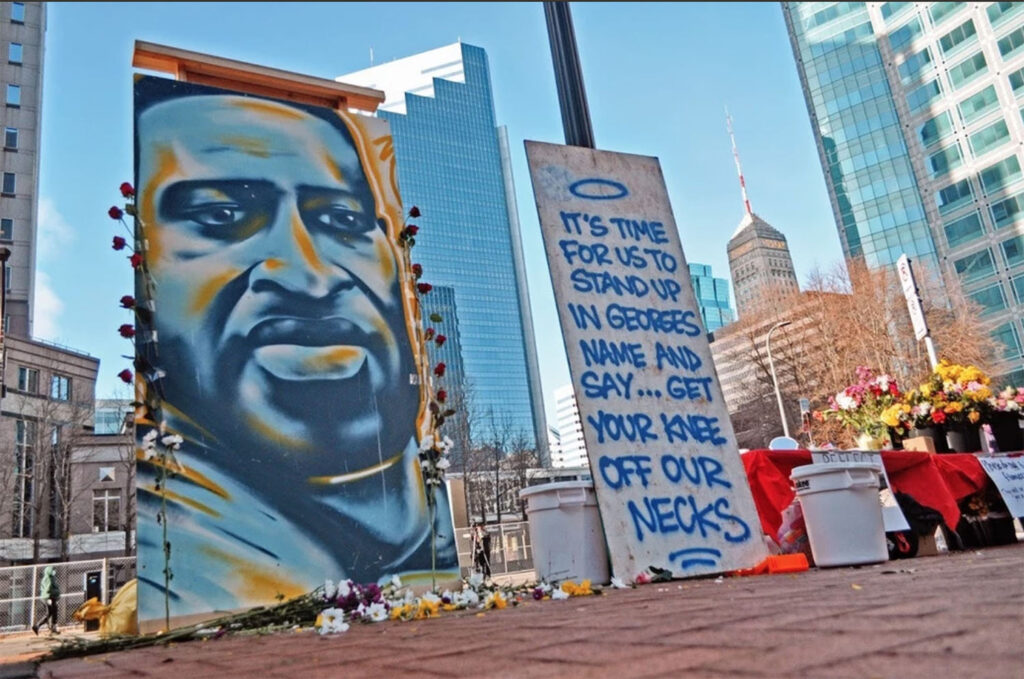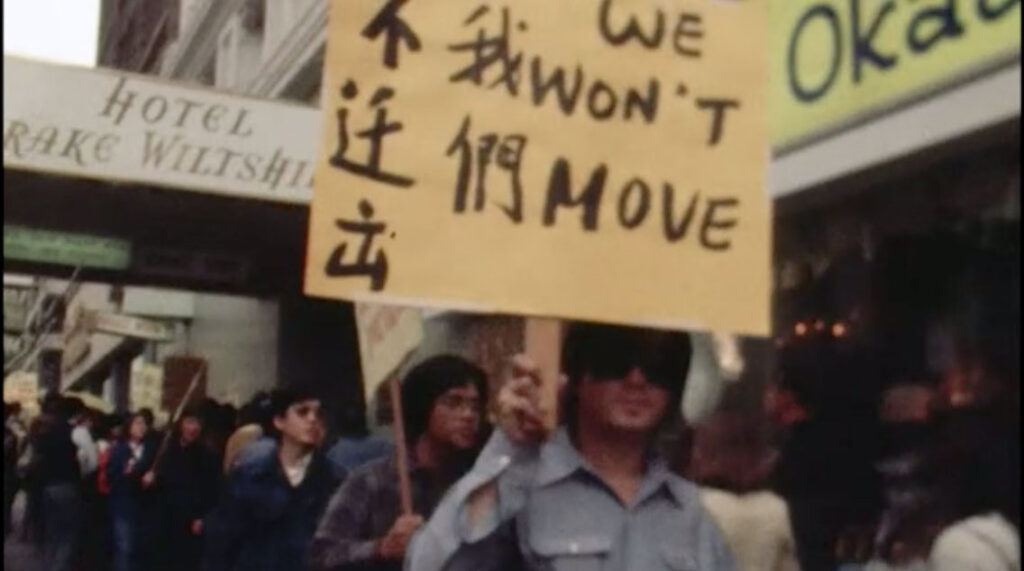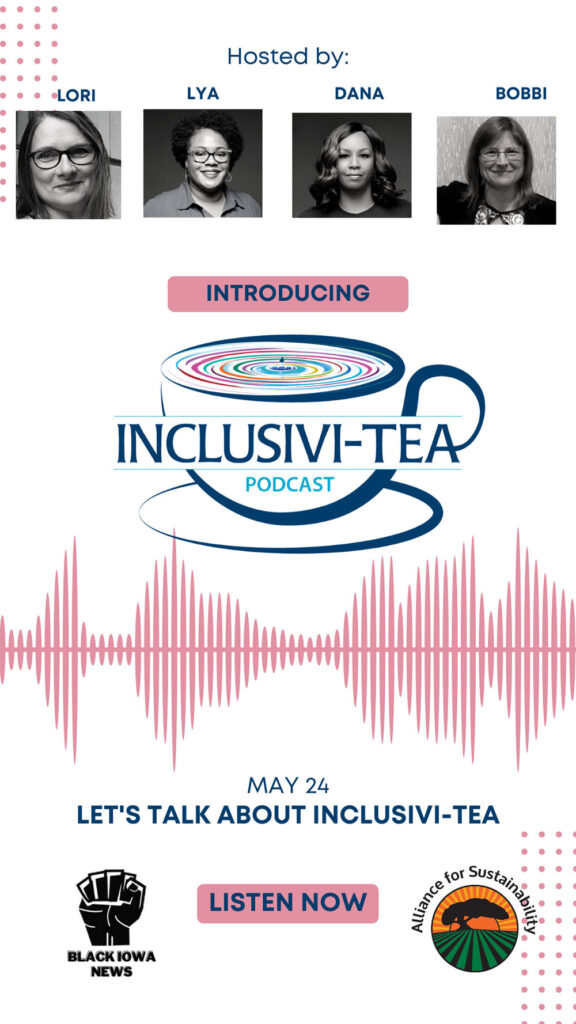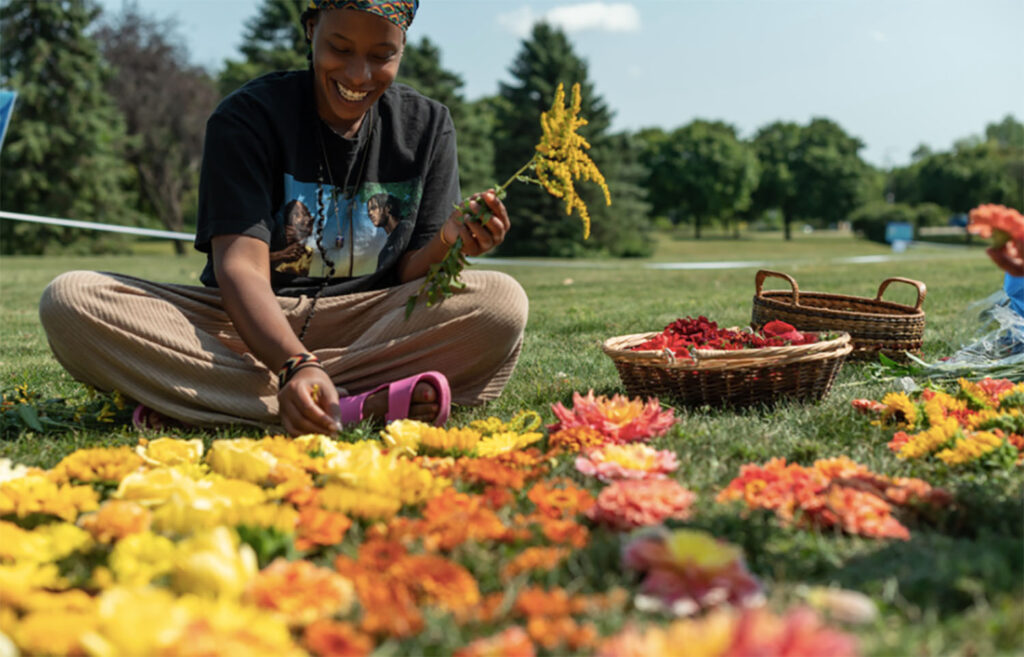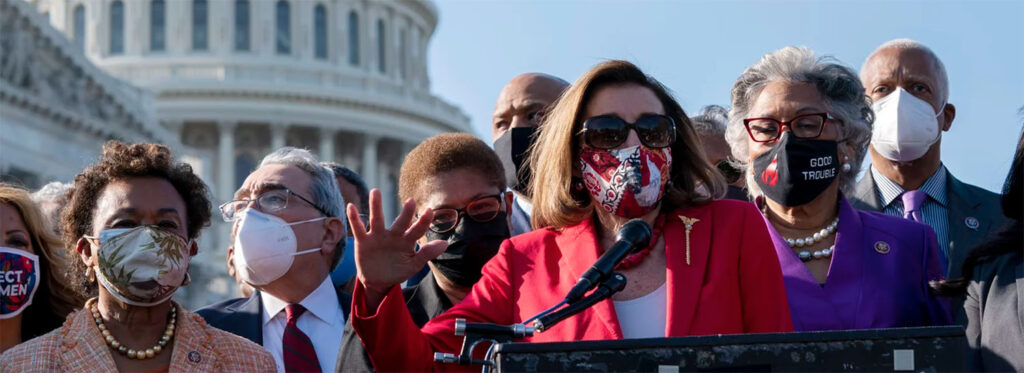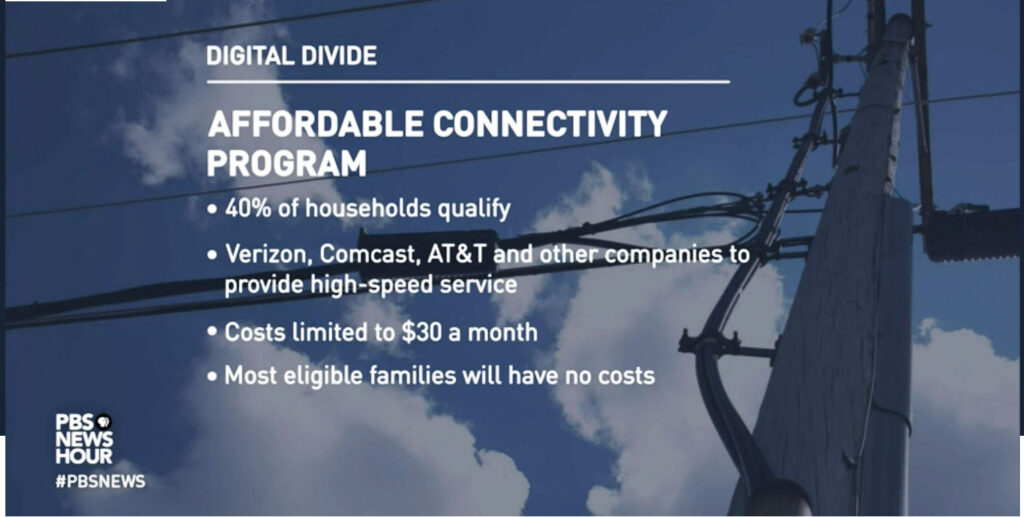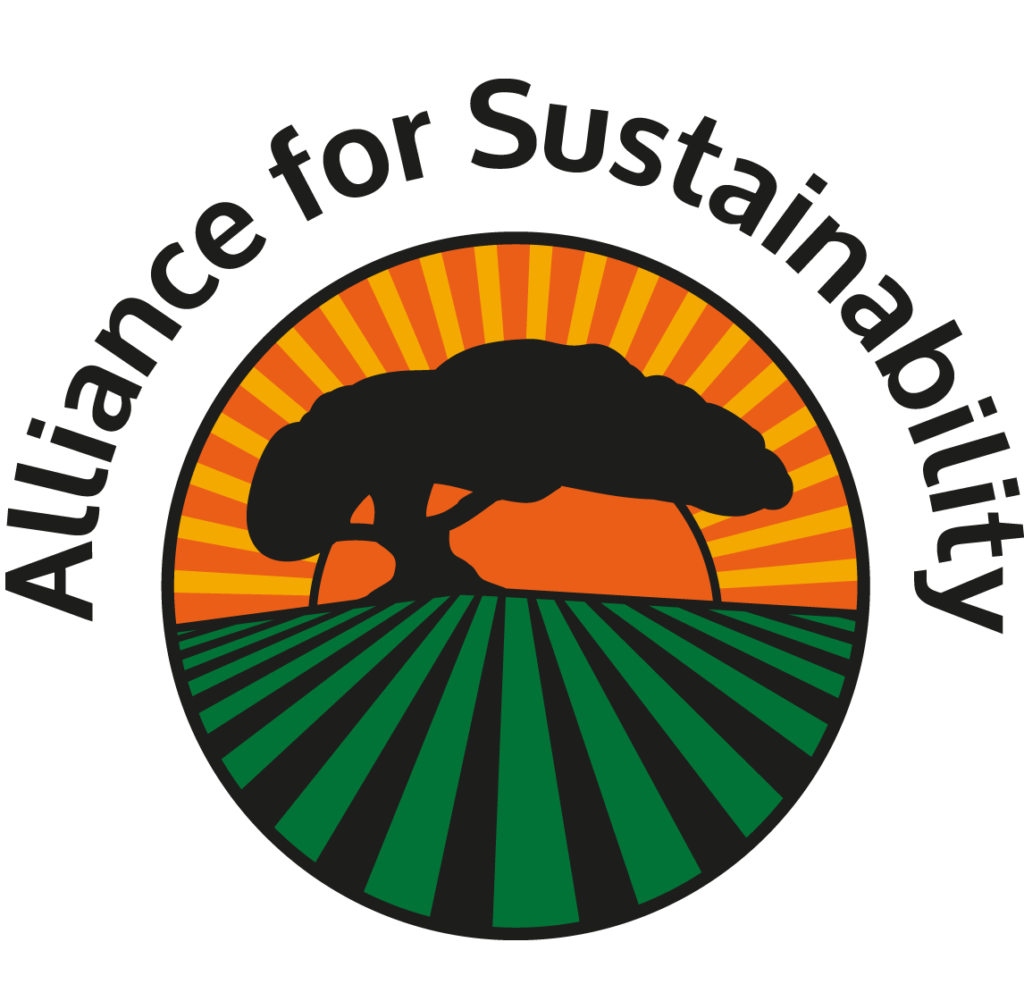
Art of the Week
The 2nd annual Justice for George Exhibition celebrated the life of George Floyd with 200 original plywood mural panels which protected stores during the protests after the murder.
“Memorialize the Movement (MTM) was created in reaction to the murder of George Floyd and the Minneapolis Uprising of 2020. The mission of MTM is to collect, preserve, and activate the plywood murals that Twin Cities artists created to illustrate the public discourse on police brutality, state violence, and the Black experience in this renewed civil rights movement. Through this work we are bringing the Black narrative to the forefront of this ongoing fight for justice,” according to MTM.
Sustainability Tip: Join your local buy nothing group for a gift economy
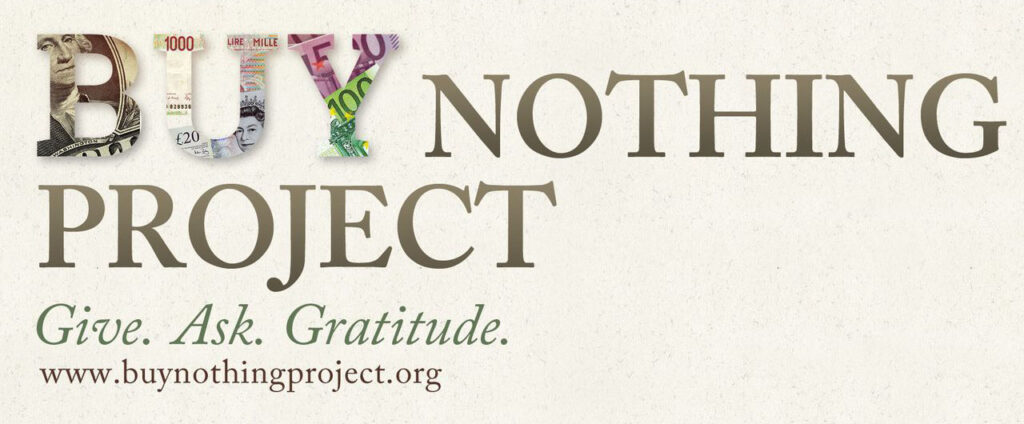
The Buy Nothing Project is an international web-based group advocating for local gifting. It’s similar to a yard sale but is entirely free!
After joining a local Buy Nothing group online, you can view all sorts of commodities that your neighbors want to give away. From big furniture like shelves to small items like books, group members post pictures of each item and wait for people’s responses.
If you need something specific, you can post a question to see if anyone has your item. Giving back to the community is encouraged through posting things you no longer need.
Buy Nothing has 5 million members in 44 countries and 7,000 communities. It offers a meaningful platform for commodity exchange outside the mainstream consumerist market.
It also increases reuse while decreasing landfilling. Since groups are local, residents can walk, bike, or drive a short distance to get items, thus generating little fossil fuels compared to shipping.
What to Watch: PBS’ Chinatown Rising for AAPI Month
As a fitting closing to AAPI Month, we recommend watching PBS’ Chinatown Rising May 26, 2022.
“Weaving together never-before-seen archival footage and photographs, Chinatown Rising reveals a deeply personal portrait of a San Francisco neighborhood in transition,” from the PBS America Reframed series.
“Chinatown activists of the 1960s reflect on their years as young residents waging battles for bilingual education, tenants’ rights and ethnic studies curriculum that would shape their community and nation.”
Listen: Our new Inclusivi-TEA podcast
The Alliance is excited to announce the launch of the revamped, renamed, and reimagined podcast, Inclusivi-TEA, in collaboration with Black Iowa News and Facebook Group Inclusivi-TEA (formerly Inclusive Sustainability).
It’s inspired by host and Alliance Board Member Lori Myren-Manbeck’s former podcast, Inclusivi-TALKS Sustainability.
We invite you to join us for our first 15-minute podcast. Podcasts come out every Tuesday with diverse guests and conversations. Our goal is to inspire, educate, and entertain while we help co-create a sustainable future for everyone.
You can also join our Facebook group, Inclusivi-TEA, to learn more.
Calendar
Highlights
– Take Action: Pass the George Floyd Justice in Policing Act
– Inspiration: Sustainability from an indigenous perspective
– Sustainability Tip: Join your local Buy Nothing group for a gift economy
– Equity: 11.5 million low-income families benefit from Biden Admin internet service and subsidies
– What to Watch: PBS’ Chinatown Rising for AAPI Month
At the Alliance
On a day that rocked Minneapolis, Minnesota, and our world two years ago, George Floyd was senselessly murdered for being Black at the hands of four police officers two miles from the Alliance.
America seemed to come together and even companies recognized that Black Lives Matter. However, in too many cases it appeared that their actions were merely performative because there was no real policy or action taken.
Sadly, two years later, the seeming sense of unity and common purpose around a racial reckoning has vanished. How would you feel if polling showed that:
- 8 in 10 of people like you felt there was little or no improvement in how police treated you?
- Three-quarters of people like you are worried that you or someone you love will be attacked?
- Only 10 percent of people like you think the problems you face will improve in your lifetime, while 53% think they will actually get worse?
- Your hope has dropped in half from 59% to only 30% that people who are different than you will share concern about the discrimination people like you face?
Would you feel abandoned, overwhelmed or threatened? The findings above reflect actual Black Americans’ experiences in new polling by the Washington Post/Ipsos.
We must stand in solidarity with our Black brothers and sisters. The time to speak up and act is now. Please join us in signing the George Floyd Justice in Policing Act and rise up against hate and for a just, equitable world.
You can help us accomplish this by supporting our SHE Kindness Campaign creating a positive world of sustainability, health, equity and kindness with your donation.
Inspiration: Sustainability from an indigenous perspective
While the Eurocentric dominant culture has finally moved toward the concept of “sustainability”, indigenous people have had the concept integrated into their world view from the beginning, as emphasized in this excellent article by Lakota beadworker Jenna Grey-Eagle published by the Lower Phalen Creek Project.
“The Indigenous view wants an overall well-being of all creatures and all that Uƞc̣i Maká–Grandmother Earth has to offer… Greater emphasis is placed on respect, giving, and reciprocity as expressed in the idea of caretaking or guardianship of the natural world —which we are a part of, not separate from,” says Grey-Eagle.
“Indigenous people have a long storied history with this landscape, and sustainability requires the time and energy necessary to build relationships with our plant and animal relatives. Standing in right relationship changes the way we walk on the landscape,” explains ethnobotanist Linda Black Elk.
“When we know the trees, herbs, birds, and other living things as our relatives, we treat them with kindness and respect, we practice reciprocity and sustainability. Practicing sustainability is the best way to protect both people and our Mother Earth,” according to Black Elk.
Take Action: Pass the George Floyd Justice in Policing Act
May 25, 2022 marks two years since the murder of George Floyd. In response, last summer the House passed the George Floyd Justice in Policing Act, a comprehensive bill addressing police brutality and accountability. The bill would prohibit no-knock warrants, make de-escalation training for police mandatory, and create a national registry of police misconduct.
Unfortunately, the bill was blocked by Republicans in the Senate and never received a vote. Please join the Alliance and the National Education Association in urging your Senators to support a vote on the George Floyd Justice In Policing Act.
Equity: 11.5 million low-income families benefit from Biden Admin internet service and subsidies
The Biden Administration is taking significant steps to address America’s “digital divide” through their Dec 2021 Affordability Connectivity Program. It expands internet coverage areas and provides subsidies to low-income families through partnerships with AT&T, Comcast, Verizon, and others.
This program has already benefited 11.5 million households and can serve the 40% of Americans with incomes 200% or less of Federal Poverty Guidelines. The program offers eligible families accessible internet for less than $30/month, and in some cases, families might not need to pay, says PBS Newshour.
This is a huge win-win-win opportunity for people to save money, address equity and fight inflation. According to Nicol Turner from the Brookings Institution, the digital divide has been further highlighted during the pandemic when so many low-income and rural students have not been able to receive proper education. Specifically, Black and Native American families are disproportionately affected.

